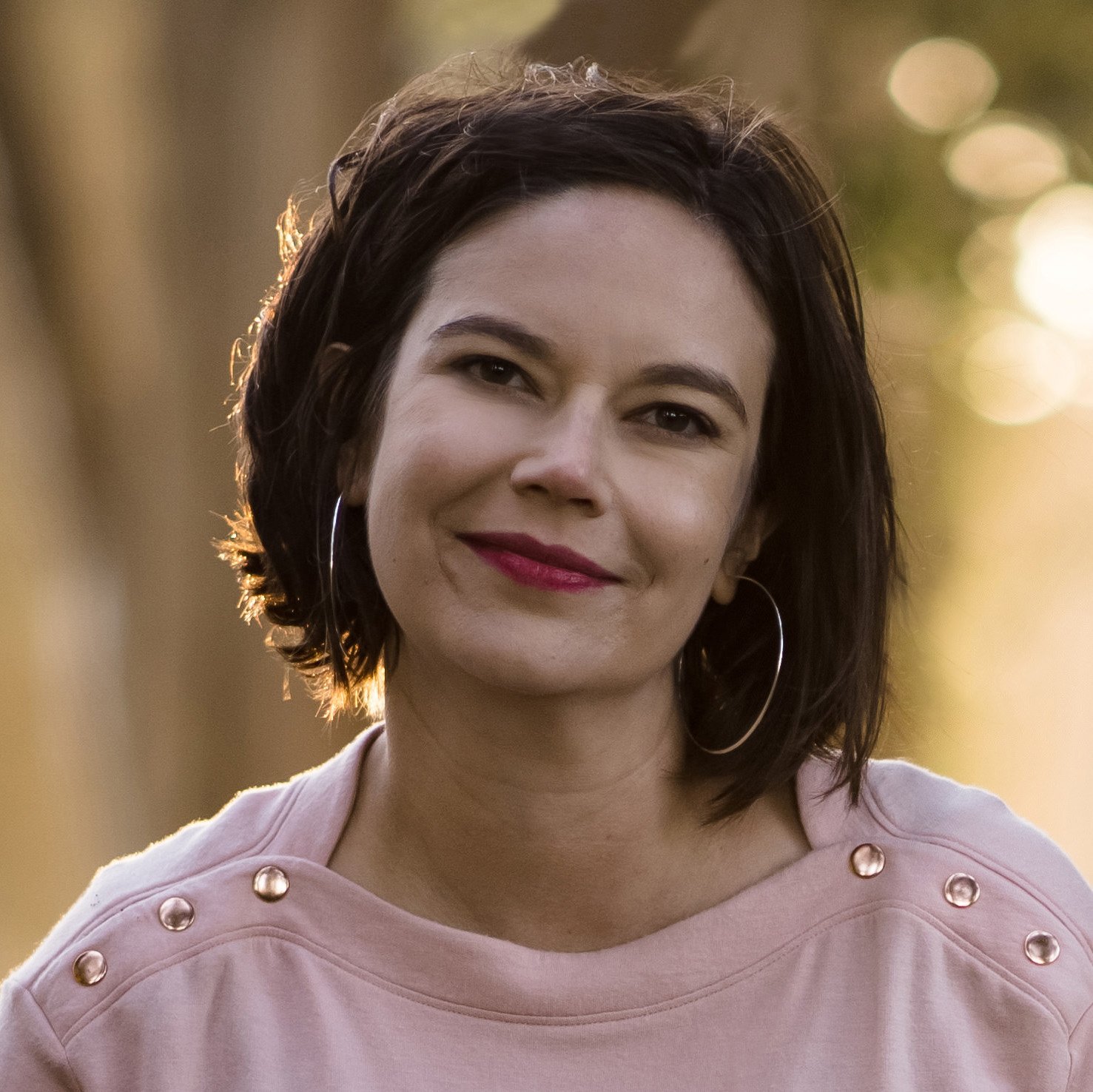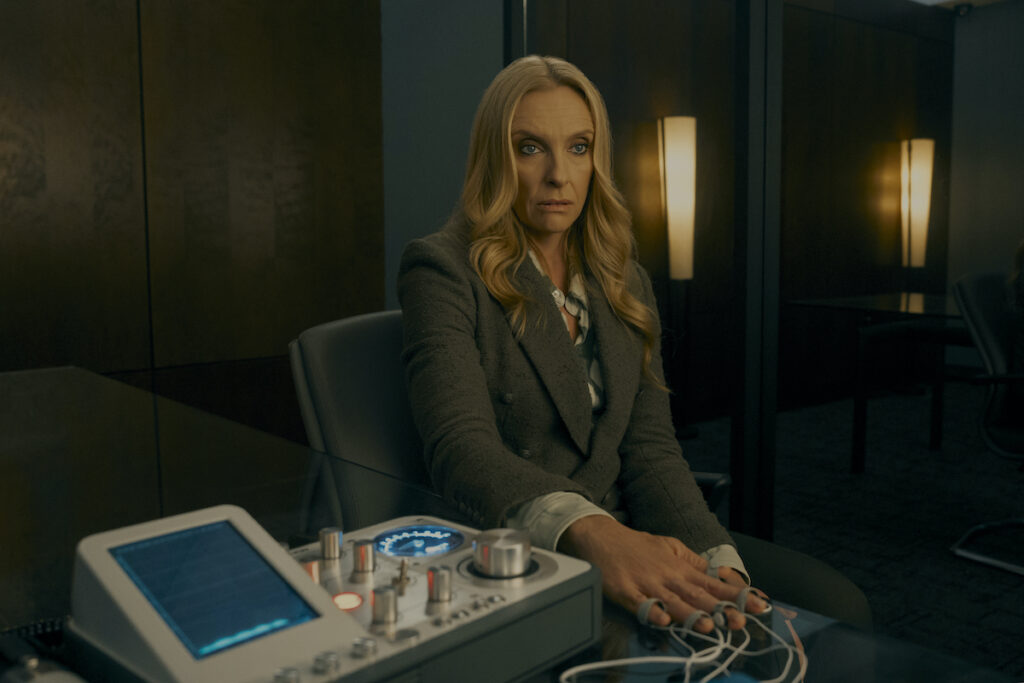Can you imagine a globetrotting suspense thriller about gender power imbalances? Author Naomi Alderman tells such a tale in her 2016 book, The Power, which Prime Video has adapted into a series premiering today.
In both, the world as we know it is upended when teen girls get the power to shoot electricity out of their bodies. Suddenly this group, which the show reminds us is consistently preyed upon, can become the predator. This shift in physical dominance changes things—for example, early on, we see one girl kill her physically and sexually abusive foster father.
But it’s not all personal, the changes are also political as we later hear of power outages and fires, political protests and revolts as the world’s women and girls rebel. The series hones relatively faithfully to the book, not even attempting to get to the end of its source material in the eight episodes available for critics, but rather world-building, spending time with its global cast of characters, and moving its multiple plots along at a fast clip.
The result is a compelling, action-packed series that, while heavy-handed at times, is still delightfully thought-provoking to watch.

Yes, the first episode is weighed down by having to introduce so many disparate plotlines and characters. In it, we meet Allie (Halle Bush), a Black American teen who’s gone mute after so much abuse in the foster system. After the aforementioned murder, she takes off running, eventually finding (and taking over!) a convent that’s taken in other destitute girls. Bush gives a compelling performance as she explores her newfound abilities, alternating from powerless to powerful, from lost to a leader.
Then there’s Tunde (Toheeb Jimoh), a young Nigeran man who wants to become a journalist while his family has other plans for him. He helps to break the story globally, capturing footage of his peers playing with their lightning bolts. Here the series falters a bit, replaying a moment when Tunde’s friend Ndudi (Heather Agyepong) is electrocuted in graphic detail. While we see the death of Allie’s abuser (Chris Mulkey) more than once, he’s somehow given more dignity than Ndudi—the camera focuses and stops on the pain crossing her face, the bolt hitting her like a smack. In contrast, he goes quietly on the floor, mostly covered by Allie’s hands, the camera not making a spectacle out of his bodily injury in the same way.
We also meet Roxy Monke (Ria Zmitrowicz), the illegitimate daughter of an organized crime family, who’s itching to join her dad’s business even before she gets the power.
And we meet the Clearly-Lopezes, a (mostly) functional US family headed by Toni Collette’s Margot, the ambitious mayor of Seattle. She’s struggling with double standards at work and home as her three kids (notably Auli’i Cravalho as eldest daughter Jos) want a different level of engagement than she can offer. The father, Rob, played gamely by John Leguizamo, is stuck in the mother role—yes, he has an important career as a doctor, but the direction gives him a constant stream of domestic tasks when at home. He does the laundry, irons the clothes, and makes the kids breakfast. It’s heavy-handed and annoying (in real life, American women who make more money than their spouses STILL do the majority of the housework), especially because we never see Margot do any chores. Theirs doesn’t appear to be an egalitarian relationship but rather a gender inverted one—and one that is more of a boogie man of feminist goals than the reality of modern womanhood.
That’s a lot to set up in one episode (and there are actually more plotlines, including a compelling one in Moldova to come). But “The Power” pushes through and takes off in the second episode, visiting distant corners of the globe. And the film manages its diverse cast mostly well: Colette shines, as always, here toggling between savior and embarrassing mom; Jimoh falls effortlessly into his role, his natural charisma and wholesomeness making believable his quick success as a journalist; and Zmitrowicz reverberates with power, rage, and moxie.

The art direction is beautiful, traveling across the world, yes, but also taking time to explore its various settings in moments of alternating between quiet and upheaval. There’s thankfully no sepia tone marking some locations as different or dangerous, but it’s still immediately clear where we are: London or Seattle, rural US or a bustling Nigeria, the suffocating Presidential Palace of Moldova or the nearby countryside, which multiple characters remind us is a sex-trafficking capital.
“The Power” is wonderfully assembled, acted, and directed. But its real success is in how it envisions women, trans, and intersex people as capable of the cruelty and abuses of power that have long been the providence of men. In this show, women are not kinder, more maternal, or more communal than men. They’ve adopted those strategies to survive but can shed them, becoming as ruthless, unhinged, and nakedly power-hungry as any man.
I’m not sure I totally buy it, but it is a compelling question: is our entire world order—our familial, sexual, governmental, economic, and religious structures—all predicated on who has the greater capacity for violence? “The Power” argues it does, and it makes for smart TV along the way.
All of season one was screened for review. “The Power” is now playing on Prime Video.












